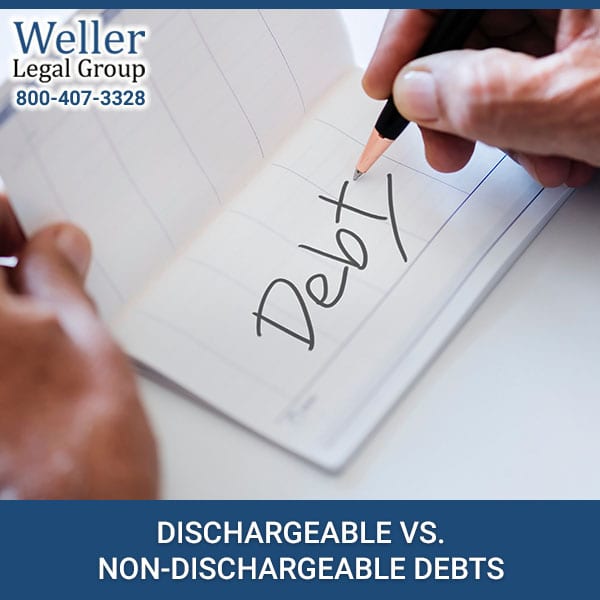 Many Americans today will have to file for a bankruptcy at some point in their lives. The two most common types of bankruptcies for individuals to file in the United States is Chapter 7 Bankruptcy and Chapter 13 Bankruptcy. In this article we are going to discuss the key differences between dischargeable debts and non-dischargeable debts, while including some examples of each type. Hopefully after reading this article you will get a better understanding of the differences between the two types of debts that are associated with bankruptcies in America.
Many Americans today will have to file for a bankruptcy at some point in their lives. The two most common types of bankruptcies for individuals to file in the United States is Chapter 7 Bankruptcy and Chapter 13 Bankruptcy. In this article we are going to discuss the key differences between dischargeable debts and non-dischargeable debts, while including some examples of each type. Hopefully after reading this article you will get a better understanding of the differences between the two types of debts that are associated with bankruptcies in America.
Dischargeable Debts
Dischargeable debts are the type of debts that you are able to get rid of with a bankruptcy. Not all debts are dischargeable debts so it is important for you to know the differences before you decide to file for a bankruptcy. Some of the debts that you are able to discharge in both a Chapter 7 Bankruptcy or a Chapter 13 Bankruptcy are: credit cards, medical bills, personal loans, promissory notes, and certain lawsuit judgements that may be against you. It is important to know that there are some debts that you are able to have discharged in a Chapter 13 Bankruptcy, but are not able to discharge in a Chapter 7 Bankruptcy. Some of these debts that can be discharged in a Chapter 13 Bankruptcy but cannot in a Chapter 7 Bankruptcy include: marital debts arising out of a divorce, court fees, home ownership association fees, and debts for loans from a retirement plan. It is important that you know what types of debts that you currently have to help you decide which type of bankruptcy is best for you and your current situation.
Non-Dischargeable Debts
Now that you know about dischargeable debts let’s discuss some non-dischargeable debts. Non-dischargeable debts are the types of debts that you cannot get rid of even if you decide to go through with the bankruptcy process. It is unfortunate but not all debts are able to be discharged with a bankruptcy. Some of the debts that cannot be discharged with a bankruptcy include: child support, alimony payments, certain types of tax debts, and fines or restitution you may owe from breaking the law. It is important that you know the types of non-dischargeable debts ahead of time so you do not waste your time going through the bankruptcy process especially if you are not able to discharge the types of debts that you want to get rid of. Make sure to discuss with your attorney ahead of time to verify if your current debts are able to be discharged or not and ask them what their opinion is on whether you should file for Chapter 7 Bankruptcy or Chapter 13 Bankruptcy.
Final Thoughts
We at The Weller Legal group hope that the information provided to you in this article helped you understand the main differences between dischargeable and non-dischargeable debts. The Weller Legal Group has over 20 years of experience in helping our clients with their bankruptcies and improving their credit scores. We have offices located all throughout Florida, including, Clearwater, Port Richey, and Lakeland. If you have any additional questions in regards to filing for bankruptcy or working on improving your credit score in the near future feel free to give us a call today at 1-800-407-3328.
Picture Credit: rawpixel.com

